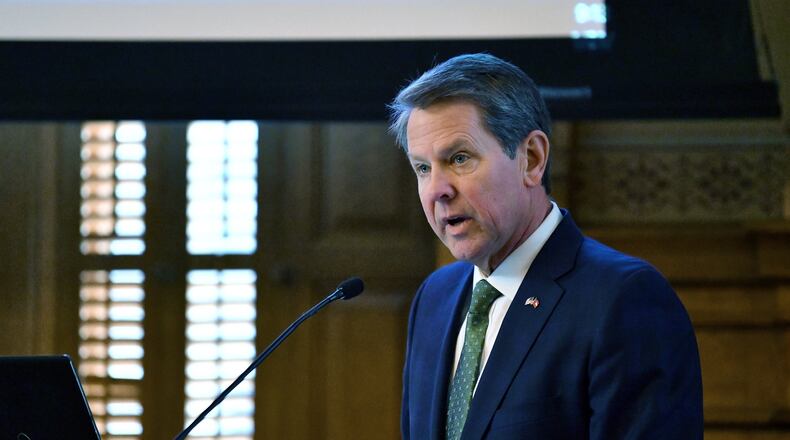Georgians who buy health insurance through the Affordable Care Act may have expected big changes in their plans based on an initial proposal by Gov. Brian Kemp regarding the way the marketplace works. But the Kemp administration has backed off of the most dramatic changes in its waiver proposal to the federal government.
The proposal also postpones until 2022 a reinsurance plan for new state subsidies that had the potential to drop premium prices. The delay is a result of the COVID-19 pandemic’s drain on state revenues and health staff’s time.
The Kemp administration said the revised proposal still has a set of “innovative solutions” designed “to reduce premiums, increase coverage, and promote a more competitive private insurance marketplace” in the state.
“The core design...remains unchanged,” Kemp spokesman Cody Hall said in a written statement. In working over the proposals since December, Hall said that Kemp’s administration and officials from the U.S. departments of Health and Human Services and Treasury “mutually learned a lot from each other.”
Dropped from the waiver is Kemp’s idea to subsidize new types of plans on the state’s ACA marketplace, cheaper plans that may have somewhat skimpier or specially designed coverage. Right now federal subsidies only go to lower the price of full-coverage, regular plans.
Actuaries said, though, that the governor’s idea had the potential to increase insurance prices for those who still chose regular, full-coverage plans. The proposal also raised the possibility of capping coverage and starting a wait list if there wasn’t enough money for all comers, though the administration had maintained that would be unlikely.
Also dropped: Kemp’s proposal for the state to take control of the federal subsidies, about $2.7 billion that goes annually to subsidize Georgians’ ACA insurance prices. People making from 100% to 400% of the poverty level get subsidized premium prices. Georgia, which has the second or third-highest uninsured rate in the country according to Kaiser Family Foundation, would have created its own program for distributing the subsidy money.
That power will remain in the federal government’s hands under the new waiver request.
Those big changes were also perhaps the diciest proposals legally. Now those won’t be legal hurdles.
The original waiver plan “was fundamentally unapprovable,” said Christen Young, former deputy secretary of the North Carolina Department of Health and Human Services and a fellow at the center-left-leaning Brookings Institution.
If Georgia wanted to make its claims in the original request come true, she maintained the state would have had to put millions of dollars more into the subsidy pool. “There there was just no way to make the numbers add up,” Young said.
Some conservatives had praised Kemp’s move, though, saying it gave consumers a better range of choices of plans and would be more financially responsible.
Kemp still hopes to block Georgians’ access to the federal healthcare.gov website where they currently can shop for plans and browse insurance agents in their area. Instead the state would encourage Georgians to buy directly from insurance companies or private websites. Kemp’s proposal says that healthcare.gov could instead redirect Georgians to a state website, called “Georgia Access,” that would streamline their experience.
Critics maintain that this proposal doesn’t appear to add a new benefit to consumers, but rather takes an option away.
What is likely to have little if any legal trouble is the waiver request’s most expensive and best understood provision, the reinsurance program.
Reinsurance is a tried-and-true program that uses state tax money to subsidize existing private insurance companies. Essentially, the state agrees to pay some of the biggest insurance claims that come in in a given year, in the hopes the insurance companies’ savings trickle down to consumers. Evidence has shown that consumers do get lower prices when reinsurance has been tried in other states.
That provision was estimated to cost the state and federal governments $300 million in its first year. The savings in premium prices would be perhaps 4% for people in metro Atlanta, but bigger for people in rural areas, as much as a quarter.
The state is accepting public comment until July 23, with a public meeting July 22 at dch.georgia.gov/events.
About the Author
Keep Reading
The Latest
Featured



